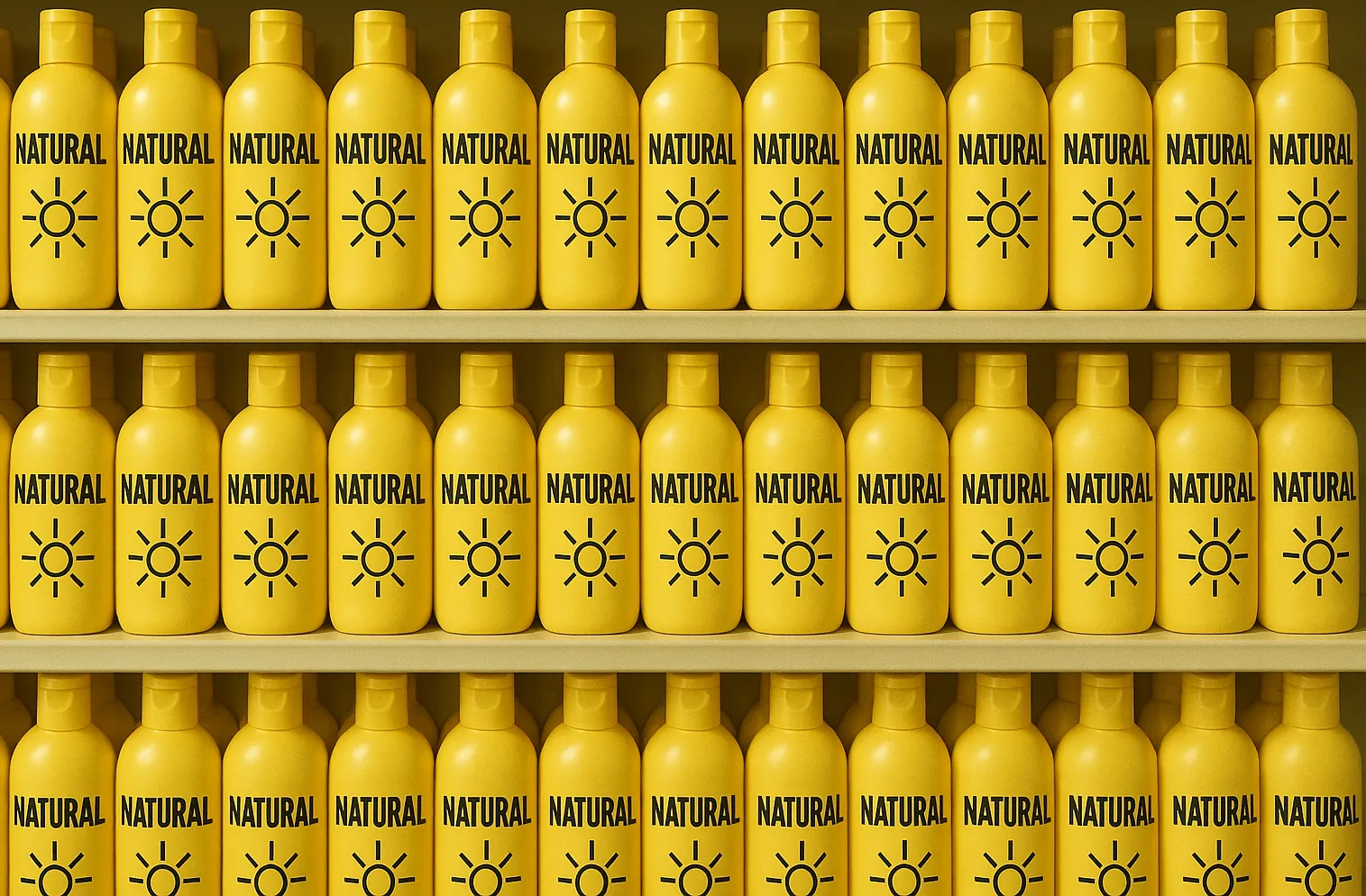More and more people are switching to natural sunscreen, out of concern about chemical ingredients and cancer. But what does ‘natural’ even mean, when the end product still comes from a laboratory?
The label is increasingly used as a kind of reassurance, driven more by feeling than by scientific reasoning. In a world where products and processes are becoming ever more technical and difficult to understand, ‘natural’ offers a sense of certainty. But what does it mean when a substance comes from the earth and is then processed in a lab? Is a synthetic molecule that protects us from UV radiation really less natural than a refined mineral?
The benzene incident
Sunscreen is highly effective at preventing skin cancer. Yet persistent myths on social media claim that sunscreen itself might cause cancer. These often refer to the chemical benzene, a known carcinogen, which was detected in some sunscreen products in 2021 by the U.S. laboratory Valisure. The company tested nearly 300 products and found traces of benzene in dozens of them, sometimes above the FDA’s permitted limit. The discovery sparked public alarm and led to recalls by major brands such as Johnson & Johnson.
However, benzene is not an ingredient in sunscreen. It is an unwanted contaminant that can occasionally occur during manufacturing or packaging. According to health authorities, the vast majority of detected levels were well below the risk threshold. The WHO and dermatological associations agree that sunscreen is safe and significantly reduces the risk of skin cancer.
Mineral sunscreen
Despite this reassurance, public mistrust remains. A quick online search about sunscreen quickly leads to a flood of fear-based posts and ‘natural’ influencers. The result is that some people stop using sunscreen altogether or switch to mineral sunscreens. These feel safer: no unpronounceable names, no chemicals, pleasantly natural. But this image is misleading, scientists told the BBC. The active filters, zinc oxide and titanium dioxide, are industrially produced and work almost identically to their synthetic counterparts.
Applying as self-protection
Perhaps with natural sunscreen we are seeking protection from more than just the sun. It may also be a shield against the uncomfortable truth that nature and technology have become inseparably intertwined. We’re rubbing ourselves with a comforting illusion, while the real difference faded long ago.


Comments (0)
Share your thoughts and join the technology debate!
No comments yet
Be the first to share your thoughts!